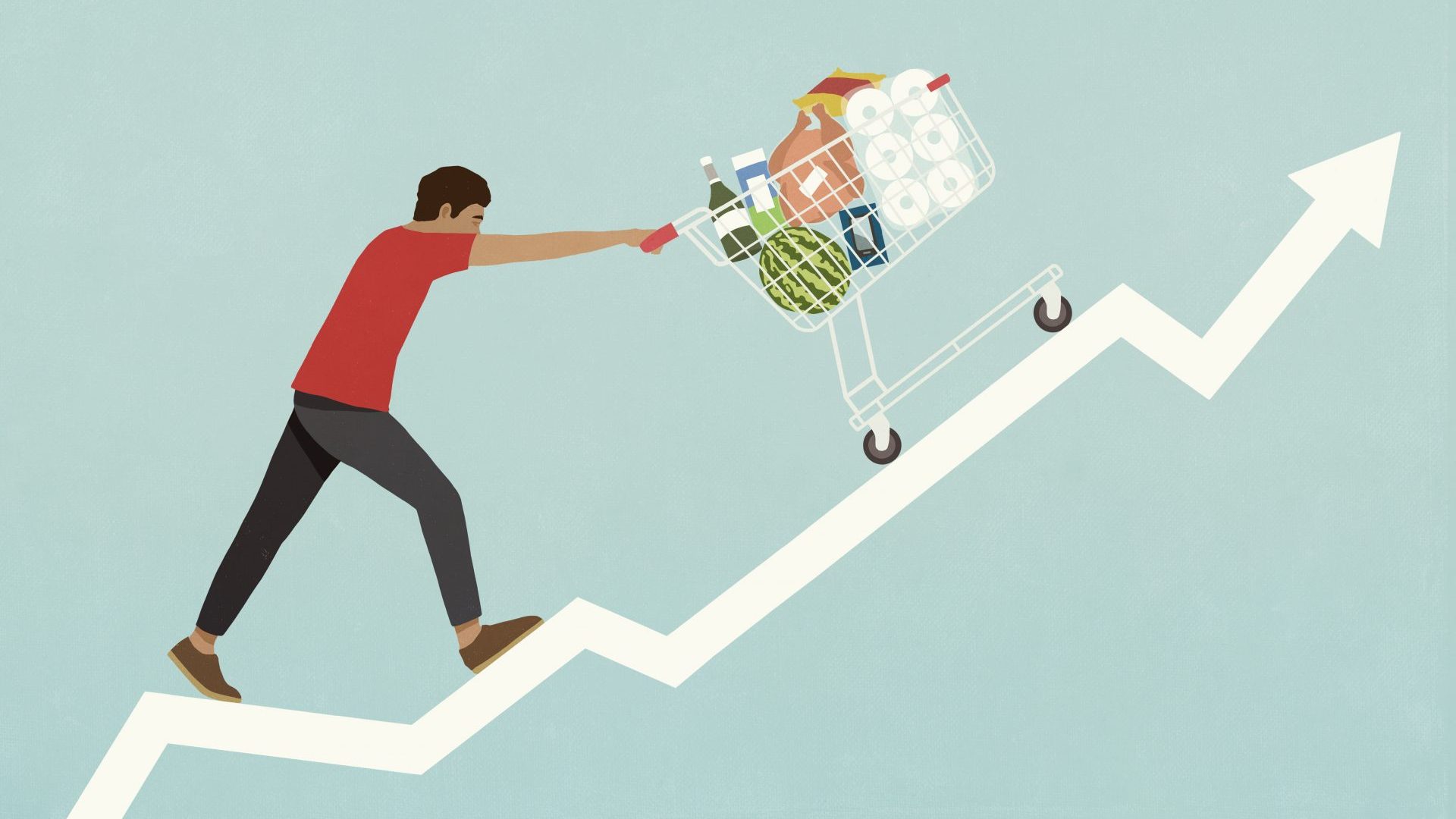Inflation is stubbornly high at 8.7% and the government is borrowing more than it thought it would have to. For the first time since 1961 the UK’s total borrowing is more than 100% of annual economic output. And remember in 1961 borrowing was on a long downward curve from the peak of the Second World War.
These are major problems for the British economy and for the government. The Bank of England will have to increase interest rates again in an attempt to squeeze out inflation, but that also makes the cost of that government borrowing higher. That alone will cost the government tens of billions a year.
But the wider issue and the bigger worry is this – why is the UK in this mess?
Every country is suffering from huge hikes in energy and commodity prices, but the UK has performed worse than most. Ours is the only major economy not to have recovered from the hammer blow of covid, our inflation rate is stubbornly high, taxes are at a 70 year high and still the government has to borrow more and more.
The fact is that with growth of just 0.1% a quarter the British economy is overheating – this is totally shocking. The economy should be able to grow at 4 or 5 times this rate without overheating. The main sign of this is that core inflation, which is calculated by stripping out volatile elements like fuel and tobacco, is on a strong upward trend. It has now risen to 7.1% and looks set to rise even further. This suggests not only that further falls in inflation are going to be difficult to achieve but that inflation is becoming dangerously hardwired into the economy.
For some strange reason the UK economy does not have the strength, the flexibility or the ability to deal with these blows. Why is this?
As economic experts like Mark Carney and Adam Posen have been pointing out for years Brexit is making things worse. The pound fell post Brexit and that had an inflationary effect, especially on oil and gas prices. But that is a one-off problem. The bigger issue is that Brexit has limited the UK economy in other ways.
It has had a devastating effect on investment, by both British firms and foreign firms. Investments made now will yield better productivity later. That means lower prices and the ability to better withstand increases in commodity prices.
Brexit has also hit the UK’s trading capacity. We are trading far less than our rivals, meaning that we are failing to take advantage of the best producers and the cheapest imports. In part this is because of red tape and costs at the border. British firms are reducing their exports because getting products out of the country is too much hassle. When cost and red tape is added to imports later this year, the situation will get even worse.
We also have an aging workforce and a terrible training record, something we hid during membership of the EU by importing skilled workers. We are still bringing in skilled workers, but more expensively from outside Europe, even though the government is doing its best to hamper the economy by bringing down immigration. But we no longer have the flexibility of the EU’s free movement, so finding skilled staff is now harder and much more expensive, which pushes up costs and therefore prices. This is hurting many sectors of the economy, including services, hospitality, agriculture, construction and manufacturing.
The government’s reputation is also in tatters. Johnson and Truss may have gone but they are not forgotten. On top of that, austerity damaged so many parts of the state that the private sector is noticing. Everything from court delays to NHS waiting lists, inadequate infrastructure and too few tax collectors; it all adds up.
This explains why the government is now having to borrow more than predicted. The British economy is becoming an economic backwater. Growth is slow and low, taxes have to rise to make up for the fact that growth is not bringing in the higher revenues expected and borrowing fills the gaps.
And the icing on the cake? The Bank of England will now have to increase interest rates so high and so quickly that another recession is almost certainly on the way.










